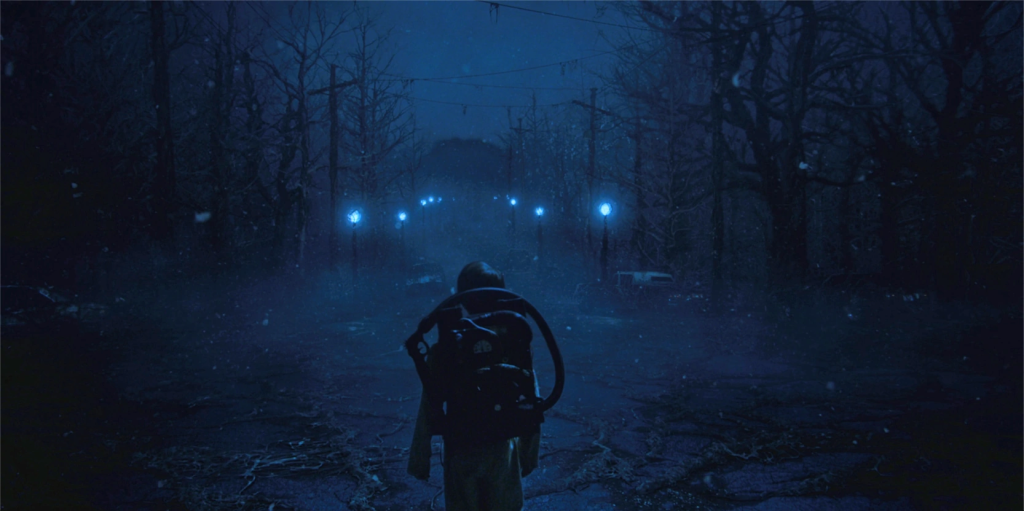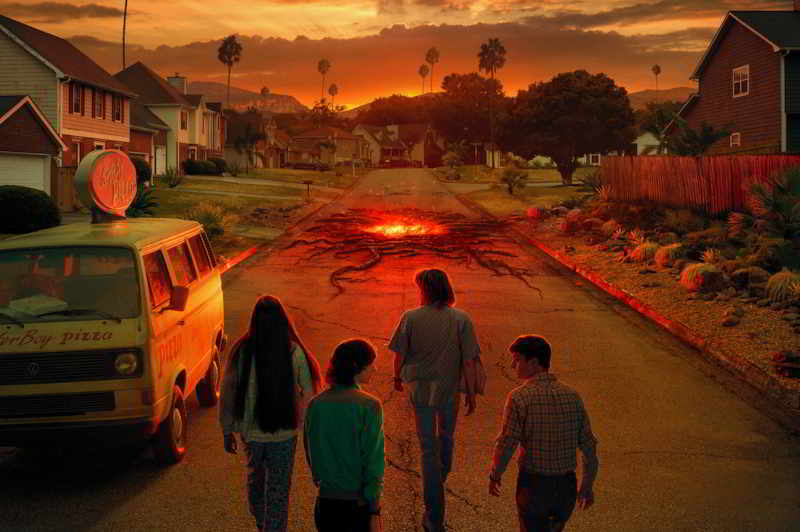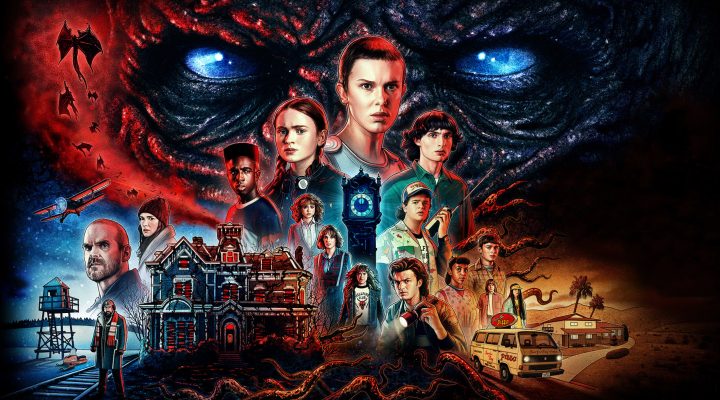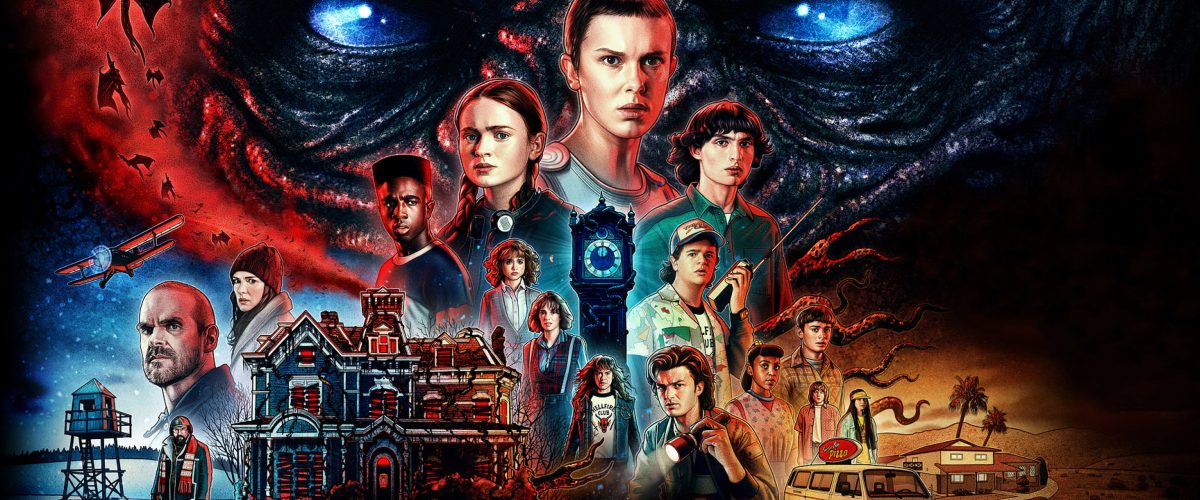My wife and I are huge fans of the Netflix series Stranger Things. We’ve watched all the episodes, usually more than once, and we always watch them as soon as they’re released. Honestly, the show is one of the main reasons we keep our Netflix subscription. In fact, I’m such a big fan that I’ve even managed to work it into a sermon.
Consequently, I’ve been doing some theological thinking about the show for a while, reflection that continued with the recent release of Season 4. I believe I’ve stumbled across “The Gospel According to Stranger Things” or at the very least “The Gospel According to Stranger Things: Season 4.”
Some truths of this “gospel” are relevant for the church today. (Spoilers ahead.)
Truth 1: Ignored or unprocessed pain and trauma are deadly.
First, the show illustrates a hard truth we see confirmed almost every day: Ignored or unprocessed pain and trauma are deadly.
The big villain for Season 4, Vecna, chooses his victims based on trauma they’ve already experienced. Whether it’s the cheerleader who finds herself pregnant, the basketball star who is abused by his father or the nerdy kid who works on the school newspaper and feels tremendous guilt for an accident that wasn’t his fault, all suffer largely in silence. And because their trauma basically goes untreated, all of them end up dead.
Tragically, we witness this in real life. We see people of all ages, but particularly students and young adults, engage in self-destructive behaviors. We hear about people struggling with suicidal thoughts. And we watch even more tragedy unfold when people turn their pain outward, resulting in mass shootings, which occur on an obscene, almost unfathomable scale. Truly, unprocessed trauma is deadly for all of us.
Truth 2: An antidote to pain and trauma is found in community.
Thankfully, the show illustrates another, more hopeful, truth, which we try to live up to in the church: An antidote to such pain and trauma is found in community. It’s found in friendship. It’s found in transparency and honesty and love. An antidote is found when the church lives up to its best version of itself.
In Stranger Things, we see that with Max. One of the main characters, she breaks up with her boyfriend and isolates herself after the death of her brother, about which she feels extraordinary guilt. She contemplates suicide, and because of her pain, she becomes a target of Vecna.
Although she doesn’t get through the ordeal unscathed, Max survives in large part due to the love, acceptance and community she finds with her friends. Even though Max attempts to isolate herself, her friends refuse to leave her alone. They take the initiative to make sure she remains in community. They show her how much she’s loved and accepted. They show her how valuable she is. And that initiative of her friends saves her.
We see that sort of initiative in the second chapter of the Gospel of Mark, when Jesus heals a man who was paralyzed because of the faithfulness and determination of his friends. They were so determined to get him to Jesus, they even lowered him through the roof of a house.
Unfortunately, in a world in which so many people are suffering and so many churches are worried about themselves and how they’re going to stay open, that truth can be easy to forget. A reminder to the church to provide community and to take initiative on behalf of others remains powerful. It helps us remember the world needs us and what we can provide, even if we begin to doubt that among ourselves. It reminds us the world needs the church at its best.
Truth 3: While we don’t contend with the kind of monsters that haunt Stranger Things, we do live in the Upside-Down.

The third “gospel” truth of the show can be harder to swallow, but it remains important for us. Nancy, another main character, gets trapped by Vecna, who shows her a vision of what he will do. Understandably frightened, she tells her friends: “He showed me things that haven’t happened yet. The most awful things. I saw a dark cloud spreading over Hawkins. Downtown on fire. Dead soldiers. Then this giant creature with a gaping mouth. And this creature wasn’t alone. There were so many monsters. An army. And they were coming into Hawkins. Into our neighborhoods. Into our homes. … This wasn’t the upside-down Hawkins. This was the real Hawkins. Our home.”
The show, which takes place in the fictional town of Hawkins, Ind., explores a dark, shadowy dimension the group calls the Upside-Down. The Upside-Down lacks color. Everything is a shade of gray. Trees and vegetation are dead. It’s cold and, outside of Vecna and his army of monsters, lifeless. There’s even something toxic in the air, a substance that infects people and makes them sick when they breathe it. In her vision, Nancy sees Vecna and his evil army loosed on her home, and the “real” Hawkins becomes virtually indistinguishable from its Upside-Down version.
That brings me to Stranger Things’ third “gospel” truth: While we don’t contend with the kind of monsters that haunt Hawkins, we do live in the Upside-Down. We see people commit monstrous acts of violence and evil. While we live in a world of life and color, we far too often see just how little value life can have. And by people’s actions, we watch the color drain from our world, replaced with melancholy gray. We know some seek to destroy justice and equality for their own personal gain. And just like on TV, we live in a world where violence and greed form a toxic substance that permeates the air we breathe, and it has infected us and made us sick.
Even worse, we’re watching our own “army of monsters” seek to invade our communities, neighborhoods and homes. We’re seeing ancient foes we hoped were retreating — like racism, misogyny and homophobia — now appear to be stronger than we previously thought. And we’re seeing relatively new faces in that evil army — monsters that seem to be ascendant, like authoritarianism, white Christian nationalism and fascism. Like Nancy, many of us fear this invasion of forces and our home becoming something we no longer recognize.
Truth 4: “Do not be overcome by evil, but overcome evil with good.”
The final “gospel” truth of Stranger Things is both hopeful and challenging. As Season 4 ends, Vecna has been defeated, at least temporarily. But the community feels the effects of his attack. The town lies in ruin, and many background characters, seemingly innocent people, have gone missing or died. But the main characters step up to serve. They go to makeshift shelters to pass out water and blankets, make sandwiches for people who are hungry and sort through donated toys for small children who lost everything.

And then the show features a scene that’s so short, if you blink, you’ll miss it. Outside a little church, teenagers hang up a sheet on which they’ve written the words from Romans 12:21 — “Do not be overcome by evil, but overcome evil with good.” This is the fourth and final “gospel” truth of Stranger Things, and it is one that is especially important for us today.
People around us are hurting. They’re suffering from trauma and pain, and they don’t know how to react. An army of evil has been loosed, and it will invade our communities, neighborhoods and homes if we let it. It will steal, kill and destroy. It is hateful and violent. And if we hope to defeat it, the world needs the church.
The world needs the church to be its best version of itself. This version is known for practicing community, transparency, honesty, friendship and love, for taking the initiative to care for others, especially the marginalized, oppressed and ignored. And the world needs the church to be committed to action. The world needs the church to not be overcome by evil, but to actively seek to overcome evil with good.
In that sermon in which I used Stranger Things as an illustration, I told my congregation the church was the portal through which Christ entered the world and actively turned the upside-down right-side up. While we live in the Upside Down, that doesn’t mean we should accept monstrous behavior. We are called to be a portal to the right-side up ourselves.
And then I encouraged them. I encouraged them to feel emboldened as they return to a world marred by sin. I encouraged them to feel empowered and healed. And I encouraged them, for God’s sake, go turn some things on their head; go turn some things that are upside-down right-side up. I encouraged them, because even now, that is still what our Lord commands.
Kristopher Aaron is senior pastor of First Baptist Church of Bristol, Va. He is a graduate of McAfee School of Theology and Brite Divinity School. He is married to Clary Gardner Aaron, and they have two children.


